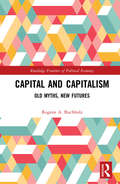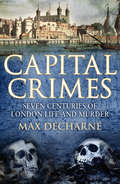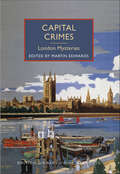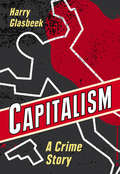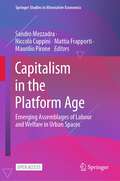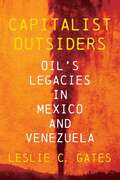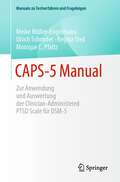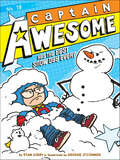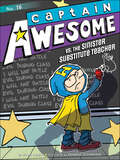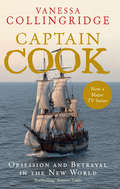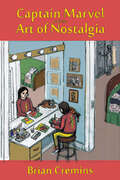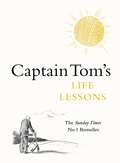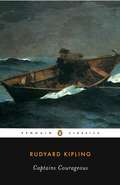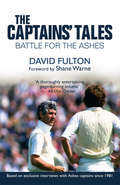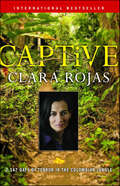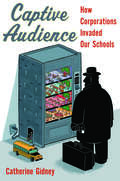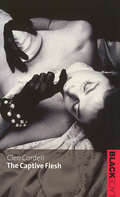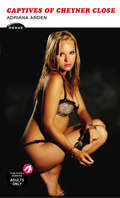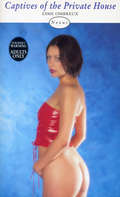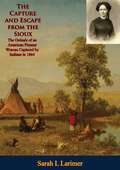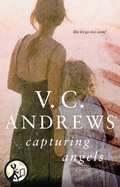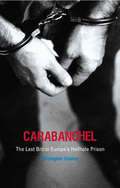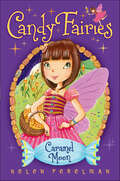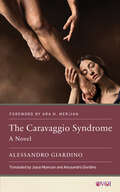- Table View
- List View
Capital and Capitalism: Old Myths, New Futures (Routledge Frontiers of Political Economy)
by Rogene A. BuchholzCapitalist societies need to undergo major change to provide for the material needs of all the people who work within the system, not just the 1 percent. They have become dysfunctional and need a different kind of orientation to continue in existence. Instead of creating wealth, which is what they are supposed to accomplish, they have created nothing but debt for the past several decades and are now in serious trouble with regard to finding the wherewithal to keep on functioning as viable societies that can provide job opportunities for their workers and the promise of a better life in the future for their citizens. The coronavirus pandemic has exposed just how many people live paycheck to paycheck and have not been able to accumulate any kind of savings. The 1 percent, meanwhile, have benefited greatly and have vastly increased their wealth over the past several decades. This book does not advocate the need to turn to a form of socialism, however, to give most workers a chance at a decent life for themselves. What is needed is a redefinition of capitalism to make it work for everyone. Capital and Capitalism seeks to uncover various myths about capitalism that hinder our ability to change the system and discuss the task of redefining capitalism by examining where neo-liberalism went wrong and what role restructuring the corporation along stakeholder lines can play in making capitalism more responsive to the entire society.It will be of interest to researchers, academics, and students in the fields of business and society, leadership, and business ethics.
Capital Crimes: Seven Centuries of London Life and Murder
by Max DecharneOver seven centuries London has changed dramatically - from walled medieval settlement to bustling modern metropolis. But throughout its history there has been one inescapable constant: murder. It winds through the heart of the capital as surely as the River Thames. Capital Crimes tells the story of crime and punishment in the city, from the killing of infamous 'questmonger' Roger Legett during the Peasants' Revolt of 1381 through to the hanging of Styllou Christofi in 1954. Along the way we encounter such shocking characters as railway murderer Franz Muller, the ‘baby farmers’ of Finchley and the notorious political assassin John Bellingham. Some are well known, some obscure; the lives and fates of all, however, have much to tell us, providing a glimpse into the workings of London’s mysterious underworld and reminding us that dark deeds are not so far removed from everyday life as we would perhaps like to believe.
Capital Crimes: London Mysteries (British Library Crime Classics #0)
by Editor Martin EdwardsMystery crime fiction written in the Golden Age of MurderCapital Crimes is an eclectic collection of London-based crime stories, blending the familiar with the unexpected in a way that reflects the personality of the city. Alongside classics by Margery Allingham, Anthony Berkeley and Thomas Burke are excellent and unusual stories by authors who are far less well known. The stories give a flavour of how writers have tackled crime in London over the span of more than half a century. Their contributions range from an early serial-killer thriller set on the London Underground and horrific vignettes to cerebral whodunits. What they have in common is an atmospheric London setting, and enduring value as entertainment.Each story is introduced by the editor, Martin Edwards, who sheds light on the authors' lives and the background to their writing.
Capitalism: How Law Shelters Shareholders And Coddles Capitalism
by Harry GlasbeekA mugger to a stranger, “Give me your wallet or I will beat you to pulp!” It is a crime. An employer says to a worker: “Adding lung-saving ventilation will reduce my profit. Give me back some of your wages and I will let you keep your lungs!” This is not a crime. Our assumptions about the world condition us to see these situations as legally different from one another. But what if we, the critics of corporate capitalism, instead insisted on taking the spirit of law, rather than its letter, seriously? It would then be possible to describe many of the daily practices of capitalists and their corporations as criminal in nature, even if not always criminal by the letter and formality of law. In Capitalism: A Crime Story, Harry Glasbeek makes the case that if the rules and doctrines of liberal law were applied as they should be according to law’s own pronouncements and methodology, corporate capitalism would be much harder to defend.
Capitalism in the Platform Age: Emerging Assemblages of Labour and Welfare in Urban Spaces (Springer Studies in Alternative Economics)
by Sandro Mezzadra Niccolò Cuppini Mattia Frapporti Maurilio PironeThis open access book provides an overview of urban digital platforms such as Airbnb and Deliveroo, which, along with Amazon, Google, Facebook, and other IT companies, constitute by now the infrastructures for other businesses to operate on and for our social life to go on. These platforms serve as standards-based techno-economic systems that simultaneously capture cooperation through remote coordination and organize labor via algorithm management.Based on a three-years research project, this contributed book outlines a general theory of platform capitalism that conceives these platforms not only as technical devices, but as generative engines that operate at the interface of several aspects, such as digitalization of forms of social cooperation; algorithm-based management of labor and participation; and private and vertical appropriation of profits. These elements are somehow iconic of the capitalist evolution of the last decades, and they open up a reflection on new forms of “primitive accumulation” (in particular regarding data), on the mechanisms used to capture and extract social surplus value, and on the logistic-financial dimensions of capital. Finally, in light of the transformations associated with the COVID-19 pandemic, the authors examine how platforms can evolve into hegemonic organizational structures.Assuming we are all already living in the age of the platform, this book takes a multifaceted approach—combining sociology with urban studies, and political sciences with economics—to grasp the challenges our societies face in terms of ensuring fair economic growth, adequate social protections, and labor rights. It will appeal to anyone interested in digital platforms and how they are changing the organization of labor, urban spaces, and forms of governance.
Capitalist Outsiders: Oil's Legacy In Mexico And Venezuela (Pitt Latin American Ser.)
by Leslie C. GatesSocial polarization has roiled neoliberal political establishments but has rarely culminated in electoral victories for anticapitalist outsiders. Instead, outsiders who accommodate capitalists often prevail. Capitalist Outsiders revisits celebrated exemplars of Latin American populism in Mexico and Venezuela to shed light on this phenomenon. It reveals how anticorruption campaigns boosted Mexico’s neoliberal-era capitalist outsider by drowning out salacious corporate scandals; how Venezuela’s apparently enlightened capitalist outsiders of the 1940s relied on segregationist, punitive labor relations; and how corporate insiders of Venezuela’s neoliberal political establishment unwittingly validated the anticapitalist Hugo Chávez as the true outsider. It weaves together these case studies to reveal an unlikely common origin for capitalist outsiders in both countries: their sequential insertion into global oil production and Mexico’s early twentieth-century radical oil workers. Capitalist Outsiders moves beyond cataloging “populist” traits and tactics or devising the institutions that might avert their rise. Instead, it specifies the distinct social bases of capitalist vs. anticapitalist outsiders. It exposes how a nation’s earlier incorporation into the capitalist world economy casts a long shadow over neoliberal-era outsider politics.
CAPS-5 Manual: Zur Anwendung und Auswertung der Clinician-Administered PTSD Scale für DSM-5 (Manuale zu Testverfahren und Fragebögen)
by Monique Pfaltz Meike Müller-Engelmann Ulrich Schnyder Regina SteilDie Clinician-Administered PTSD Scale (CAPS) ist ein strukturiertes klinisches Interview zur Erfassung der Symptome der posttraumatischen Belastungsstörung (PTBS). Mit Hilfe dieses Interviews können die verschiedenen Symptome der PTBS gemäß DSM-5 erfasst werden.Die CAPS-5 ermöglichst sowohl die Stellung der PTBS Diagnose nach DSM-5 als auch die Bestimmung eines Gesamtschweregrads der Symptomatik, sowie die Bestimmung des Schweregrads der einzelnen Symptomcluster. Zusätzlich kann mit der CAPS-5 das subjektive Leiden, die Auswirkung der Symptome auf das soziale und berufliche Funktionsniveau und die Veränderung seit der letzten Symptomerfassung bestimmt werden. Darüber hinaus erlaubt die CAPS-5 die Bestimmung des dissoziativen Subtypus der PTBS. Die CAPS gilt generell als Goldstandard zur Erfassung der Symptome der PTBS, insbesondere im Bereich der Psychotherapieforschung, da sich mit ihrer Hilfe die Wirksamkeit von Interventionen reliabel abbilden lässt. Das Interview wurde für die Anwendung durch Psychologen und Psychiaterinnen konzipiert, die in der klinischen Versorgung und/oder Forschung tätig sind.Das vorliegende Manual gibt einen Überblick über die Zielsetzung der CAPS-5, ihren Aufbau, sowie die Durchführung und Auswertung des Interviews. Der Schwerpunkt liegt dabei darin, den Interviewer bei der Durchführung und Auswertung des Interviews zu unterstützen. So finden sich im Manual ausführliche Hinweise zur Einschätzung des Vorliegens der einzelnen Symptome sowie zum Umgang mit schwierigen Situationen während des Interviews.
Captain Awesome Has the Best Snow Day Ever? (Captain Awesome #18)
by Stan KirbyCaptain Awesome is determined to make this the best snow day ever in the eighteenth adventure of the Sunnyview Superhero Squad!Captain Awesome just woke up, and something is suspicious. His mom’s not calling him to come downstairs for breakfast. His school clothes aren’t laid out for him. He peeks out the window and gasps. He can barely see anything through the piles and piles of...snow! This can only mean one thing. SNOW DAY! And it’s going to be the greatest snow day ever! Or is it?With easy-to-read language and illustrations on almost every page, the Captain Awesome chapter books are perfect for beginning readers!
Captain Awesome vs. the Sinister Substitute Teacher (Captain Awesome #16)
by Stan KirbyCaptain Awesome faces off against an evil substitute teacher in the sixteenth adventure of the Sunnyview Superhero Squad!It’s an ordinary day at Sunnyview Elementary for Eugene, Charlie, and Sally. At least until the classroom door opens and a teacher who isn’t Ms. Beasley walks in. And he’s not just any teacher—he’s a sinister substitute teacher! But where is Ms. Beasley?Eugene can only think of one explanation: the evil substitute must have captured and hidden her someplace no one will find her…well, no one except the Sunnyview Superhero Squad, of course! With time running out and their favorite teacher on the line, it’s up to Captain Awesome and his crew to rescue Ms. Beasley!With easy-to-read language and illustrations on almost every page, the Captain Awesome chapter books are perfect for beginning readers!
Captain Cook
by Vanessa CollingridgeA uniquely woven story encompassing three separate centuries and three different lives. Captain Cook, best known for his heroic voyages through the Pacific Ocean, is brought to life in vivid detail. We follow his humble beginnings as the son of a farm labourer, through his convention-shattering treatment of the indigenous groups he met on his travels, and then onto his final tragic voyage which signalled the end of his revered reputation. One hundred years on from the death of Cook, another great man, George Collingridge begins his own adventure. He, like Cook was oblivious to the implications his journey would have. Along the way he unfolds ancient maps, secret tales and unearths hidden lands and buried treasure. He is also said to have realised that it was not Cook who discovered Australia - it was the Portugese. This firm belief was the eventual cause of his self-destruction.Another hundred years later Vanessa Collingridge, is searching for books on her lifelong hero Captain Cook in a university library. She discovers the name of a distant cousin, George Collingridge, in a dusty card index. And so a new journey of discovery begins - in the footsteps of her hero and his nemesis.
Captain Marvel and the Art of Nostalgia
by Brian CreminsBilly Batson discovers a secret in a forgotten subway tunnel. There the young man meets a wizard who offers a precious gift: a magic word that will transform the newsboy into a hero. When Billy says, "Shazam!," he becomes Captain Marvel, the World's Mightiest Mortal, one of the most popular comic book characters of the 1940s. This book tells the story of that hero and the writers and artists who created his magical adventures.The saga of Captain Marvel is also that of artist C. C. Beck and writer Otto Binder, one of the most innovative and prolific creative teams working during the Golden Age of comics in the United States. While Beck was the technician and meticulous craftsman, Binder contributed the still, human voice at the heart of Billy's adventures. Later in his career, Beck, like his friend and colleague Will Eisner, developed a theory of comic art expressed in numerous articles, essays, and interviews. A decade after Fawcett Publications settled a copyright infringement lawsuit with Superman's publisher, Beck and Binder became legendary, celebrated figures in comic book fandom of the 1960s.What Beck, Binder, and their readers share in common is a fascination with nostalgia, which has shaped the history of comics and comics scholarship in the United States. Billy Batson's America, with its cartoon villains and talking tigers, remains a living archive of childhood memories, so precious but elusive, as strange and mysterious as the boy's first visit to the subway tunnel. Taking cues from Beck's theories of art and from the growing field of memory studies, Captain Marvel and the Art of Nostalgia explains why we read comics and, more significantly, how we remember them and the America that dreamed them up in the first place.
Captain Tom's Life Lessons
by Captain Tom MooreStart your year with the uplifting and heartwarming life lessons from a truly inspirational man, Captain Sir Tom Moore'Full of the infectious energy that inspired the nation' Daily Mirror'A dose of wisdom from a British hero . . . A paean to the power of positive thinking' Daily Telegraph________'One small soul like me won't make much difference' Captain TomIf Captain Tom's big heart and generosity of spirit helped see us through difficult days, this was his parting gift.In Life Lessons, Captain Tom has shared all that he learned from living a full and vibrant life. With cherished anecdotes and his signature humour, these heartening life stories will teach you how to:· Be comfortable with who you are· Keep smiling through the tough times· Walk in someone else's shoes· Keep an open mind· Find your purposeFull of the wit, warmth and wisdom that made him so special, his reflections and guiding principles form a long life, well lived; Life Lessons will be a source of reassurance, hope, and encouragement for generations to come.And a reminder, whenever times are hard, that tomorrow will be a good day.________Praise for Captain Sir Tom Moore:'A wonderful life story with lessons for us all . . . beautifully written' Daily Telegraph'Engaging . . . His upbeat nature shines through and reminds us how much worse this year would have been without him' Evening Standard'A great book' Good Morning Britain'A beautiful book. We have so much to learn from Captain Sir Tom' Chris Evans
Captains Courageous
by Rudyard KiplingHarvey Cheyne is the over-indulged son of a millionaire. When he falls overboard from an ocean liner her is rescued by a Portuguese fisherman and, initially against his will, joins the crew of the We're Here for a summer. Through the medium of an exciting adventure story, Captains Courageous (1897) deals with a boy who, like Mowgli in The Jungle Book, is thrown into an entirely alien environment.
The Captains' Tales: Battle for the Ashes
by David FultonNo one feels the heat of an Ashes battle more than the captains of England and Australia. The weight of national expectation, and more than 120 years of history, is on their shoulders from the moment they walk out to toss a coin and start a Test match that is like no other.The Captains' Tales offers a unique insight into the minds of a generation of captains from two great nations, who share with the reader what it feels like to call the shots in Test cricket's greatest cauldron. From Mike Brearley's cajoling of Ian Botham during the famous summer of 1981 to Ricky Ponting's revenge mission of 2006-07, each Ashes captain from the last quarter-century reveals what made him tick, his vision of where he wanted to take his team and how he handled key characters within the dressing-room. The author, former Kent captain David Fulton, delves behind the scenes for clues about how these sporting generals constructed their battle plans and uses his own experience to determine their strengths and weaknesses as leaders of men. The Captains' Tales will strike a chord not just with cricket lovers but with sporting captains of all abilities and readers who seek a greater insight into the broader issues of management and leadership.
Captive: 2,147 Days of Terror in the Colombian Jungle
by Clara RojasOn a fateful day in February 2002, campaign manager Clara Rojas accompanied longtime friend and presidential hopeful Ingrid Betancourt into an area controlled by the powerful leftist guerrilla group, the Revolutionary Armed Forces of Colombia (FARC). Armed with machine guns and grenades, the FARC took them hostage and kept them in the jungle for the next six years. After more than two years of captivity deep in the Colombian jungle, surrounded by jaguars, snakes, and tarantulas, miles from any town or hospital, Clara Rojas prepared to give birth in a muddy tent surrounded by heavily armed guerrillas. Her captors promised that a doctor would be brought to the camp to help her. But when Rojas went into labor and began to suffer complications, the only person on hand was a guerrilla wielding a kitchen knife. The guerrillas drugged Rojas with anesthetic while one of them slit open her abdomen. Her son, Emmanuel, was born by amateur cesarean section in April 2004. His survival was miraculous, but her joy was soon cut short when the FARC took him from her when he was only eight months old. For the next three years, Clara was given no information about him, but her desire to one day see him again kept her alive. In early 2008, Clara was finally liberated and reunited with her son—to whom this book is dedicated.
Captive Audience: How Corporations Invaded Our Schools
by Catherine GidneyWhite Spot, a popular BC restaurant chain, solicits hamburger concepts from third and fourth grade students and one of the student’s ideas becomes a feature on the kids’ menu. Home Depot donates playground equipment to an elementary school, and the ribbon-cutting ceremony culminates in a community swathed in corporate swag, temporary tattoos, and a new “Home Depot song” written by a teacher and sung by the children. Kindergarten students return home with a school district-prescribed dental hygiene flyer featuring a maze leading to a tube of Crest toothpaste. Schools receive five cents for each flyer handed to a student. While commercialism has existed in our schools for over a century, the corporate invasion of our schools reached unprecedented heights in the 1990s and 2000s after two decades of federal funding cuts and an increasing tendency to apply business models to the education system. Constant cutbacks have left school trustees, administrators, teachers, and parents with difficult decisions about how to finance programs and support students. Meanwhile, studies on the impact of advertising and consumer culture on children make clear that the effects are harmful both to the individual child and the broader culture. Captive Audience explores this compelling history of branding the classroom in Canada.
The Captive Flesh
by Cleo CordellDecadent historical tale of a colonial convent by one of the original mistresses of eroticaA tale of decadent orgies amidst the sumptuous splendour of a North African mansion. 19th-century French convent girls, Marietta and Claudine, learn their invitation to stay in the exotic palace of their handsome host requires something in return - the ecstasy of pleasure in pain.
Captives of Cheyner Close
by Adriana ArdenThe privileged girls of the exclusive Fernleigh Risa Estate, in England, look down with contempt on the residents of shabby Cheyner Close, and wage a secret war of vandalism and harassment against them. But they underestimate the ingenuity and determination of those they so despise. When the residents strike back, the girls find revenge is both sweet and very painful.
Captives of the Private House
by Esme OmbreuxAmid the vast acres of the Private House estate live the forest dwellers, led by the beautiful Talia, who is enthralled by a newcomer to the forest: a Whipmaker to whose discipline she readily submits. As the regime in the forest becomes ever more severe, the forest dwellers abduct Anne, the Mistress's youngest pupil, and a struggle begins for mastery of the Private House itself.
The Capture and Escape from the Sioux: The Ordeals of an American Pioneer Woman Captured by Indians in 1864
by Sarah L Larimer“A famous account of abduction and escape from hostile Indians in the old West.In July, 1864 hostile Oglala Sioux Indians attacked the wagon train of the pioneering Kelly and Larimer families approximately 80 miles west of Fort Laramie, Wyoming. Several people were killed or wounded but Sarah Larimer and Fanny Kelly, together with some of their children, were taken into captivity by the Indians. On the second night of their captivity Sarah Larimer and her son managed to escape from the Indian camp and after many difficulties and privations they reached the Deer Creek telegraph station and safety. This book is Sarah Larimer’s story of her ordeal. Fanny Kelly’s captivity with the Sioux lasted longer and on her release she also wrote a book about her experiences. She also sued Sarah Larimer over her memoir and several trials took place over ten years before the matter was settled. [This Book] provides fascinating insights into the westward passage of pioneer families in North America, and those interested in the Indian tribes of the Great Plains during their struggle to maintain their traditional way of life will also find much to interest them in the pages of these books.”-Print ed.
Capturing Angels
by V.C. AndrewsV.C. Andrews, queen of Gothic fiction for twenty-five years, explores a new genre in her women’s fiction debut—available exclusively as an eBook. A young mother struggles to keep her marriage together in the wake of her daughter’s kidnapping…and to keep hope of her return alive. Grace is the doting mother of Mary, an angelic five-year-old who charms everyone around her. But in one tragic moment at a local shopping mall, Grace looks down to discover that Mary is no longer at her side…and can&’t be found anywhere. She and her husband wait by the phone for a ransom demand that never comes. For months Grace believes that Mary is somewhere, alive and safe, waiting to come home to her—but as her family and friends give up hope, Grace&’s marriage begins to crumble. Only one detective, Sam Abraham, shares her determination to find Mary…but could his motives be less than altruistic? As Sam and Mary work together to track Mary&’s disappearance, they discover clues that this was more than a random kidnapping—and that Mary may have been special to more than just her mother…
Carabanchel: The Last Brit in Europe's Hellhole Prison
by Christopher ChanceThis is a true story of survival in what was arguably the most sinister prison in Europe: the Carabanchel. Christopher Chance was the last Brit to be shackled and hauled out of that infamous Spanish hellhole before it closed its gates on decades of disgraceful cruelty. Along with the rest of the remaining inmates, he was transferred to another prison when the authorities slid back the bolts for the last time.Chance's story begins on the day he entered the jail and encountered the innate racism of the prison staff and inmates. Intimidation and constant bullying by Spanish gypsies, gangsters and heroin dealers forced 'Chancer' to become ultra-violent in his quest to live unmolested during his stay, while psychotic prison officers peddled booze and drugs, and performed barbaric acts on inmates.In Carabanchel, Chance tells how he forged a band of international brothers from the chaotic human rubble in order to survive. Men from all around the world joined forces against their common aggressors, the Spanish inmates. Chancer's gang became invincible in this cauldron of hate and fear; their numbers were few but their strength lay in the loyalty and respect they had for each other, combined with their courage and fighting skills. Chance highlights the fact that much international crime is planned in prison and strong business friendships are forged which last for years. This harrowing tale is prison writing in the raw. The action remains unremittingly confined to the brutal, ugly and corrupt environment of the Carabanchel and rubs the noses of the politically correct brigade in the filth of the real world.
Caramel Moon (Candy Fairies #3)
by Helen PerelmanAll the fairies expect to eat candy corn at the Harvest Festival, but the crop of candy corns is shrinking! Is someone playing a trick?Mellie the Caramel Fairy discovers that the Chuchies are back and have been digging in the fields, pulling up the candy corns before the fairies can collect them. Mellie makes sure the Chuchies learn a lesson while her friends help her to harvest a new crop of candy corn just in time for the festival.
Cara's Land: engross yourself in this captivating and moving novel set in the Yorkshire Dales
by Elvi RhodesA heartrending but uplifting story unfolds in the Yorkshire Dales when a promising new life instead demands the utmost of Cara Dunning. From multi-million copy seller Elvi Rhodes, this is perfect for fans of Rosamunde Pilcher and Maeve Binchy.READERS ARE LOVING CARA'S LAND'A fabulous writer, and this Book is brilliant' - 5 STAR REVIEW'The first Elvi Rhodes book I have read but I've already bought more!' - 5 STAR REVIEW'EXCELLENT' - 5 STAR REVIEW'A brilliant story; I couldn't put it down.' - 5 STAR REVIEW*******************************************************************CAN SHE FIND HAPPINESS IN HER NEW LIFE?Cara Dunning first came to the wild and remote Beckwith Farm in the Yorkshire Dales as a young land girl during the Second World War.When Cara fell in love with Edward Hendry, whose family owned Beckwith, it was not what her family had intended. Edward was fifteen years older than Cara, a pacifist, and a widower with two children, one of whom bitterly resented her new stepmother.Cara was determined to make the marriage work, in spite of the hard life on the farm, in spite of Edward's reserved personality and the shadow of Nancy, his former wife.Her greatest friend on the farm was Edward's mother. Edith Hendry, a loyal and wise Dales-woman, was to see the young bride through many tragedies and vicissitudes.And as Cara's life began to change, so Cara changed too, finding a complete and utter happiness where she had never expected to...
The Caravaggio Syndrome: A Novel (Other Voices of Italy)
by Alessandro GiardinoLeyla is a headstrong Brooklyn-born art historian at a prestigious upstate New York college. When she meets feckless young computer technician Pablo at a party, she quickly becomes pregnant with his child. There’s only one problem: she can’t stand him. And one more problem: her student Michael wants Pablo for himself. Amid this love triangle, the objects of Leyla and Michael’s study take on a life of their own. Trying to learn more about Caravaggio’s masterpiece The Seven Works of Mercy, they pore over the journal and prison writings of maverick 17th-century utopian philosopher Tommaso Campanella, which, as if by enchantment, transport them back four centuries to Naples. And while the past and present miraculously converge, Leyla, Michael, and Tommaso embark on a voyage of self-discovery in search of a new life. In this fusion of historical, queer, and speculative fiction, Alessandro Giardino combines the intellectual playfulness of Umberto Eco with the psychological finesse of Michael Cunningham.
